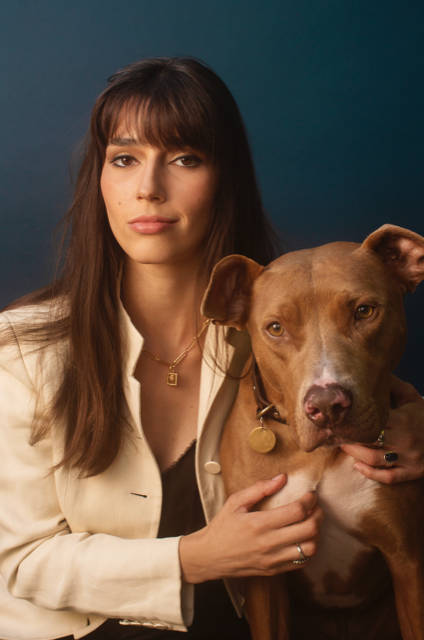Earlier this year, I was able to sit down and talk with the director of the short film Dog Lover, Anne-Sophie Bine, as she discussed her film and how she came to be in the industry.
Richard: So, what’s your name and where are you from?
Anne-Sophie: My name is Anne-Sophie, and I’m originally from Paris, France.
Richard: What made you get into the industry of film?
Anne-Sophie: I have always felt like I had very diverse interests in all the artistic fields. In college, I studied a bunch of different humanities and arts. I was doing creative writing. I was doing art history. I was studying philosophy. At one point I was making music during the pandemic. I’ve been a designer and it always felt like I was trying to tie in those different things and my visual sensibility, as well as my love of words and stories, and all of those things felt like they were pulling me in different directions until I realized that film was the natural nexus point of all of those interests and being a director, specifically, requires and calls for a certain visual sensibility and sense of visual storytelling, as well as a good ear. As well as a good sense of performing arts. So, it felt natural at that point.
Richard: It was entertaining but kind of strange, I didn’t know what to make of it. What drew you to direct Dog Lover?
Anne-Sophie: Probably exactly that. I think I like making art that unsettles people and that makes people have more questions and art that raises questions rather than makes any statements about the world and the script, written by Ari Jacobson, was delightfully weird and offbeat and provocative and that just seemed like a very fun challenge. Some of my favorite directors are these dark comedies, very provocative and very strange people. I’m thinking of Yorgos Lanthimos (The Lobster).
Richard: Have there been any challenges for you as a filmmaker and if so, what was your biggest challenge?
Anne-Sophie: I’m thinking of two things, in particular. One of them being the challenge of being a woman director in a world that is dominated, still by men and trying to find ways to be a figure of authority and find the right sort of tone to speak to and command a group of people who are working for you and in service of your vision, while at the same time being able to hear all of the different voices, being decisive in the right moments without facing the prejudice that a lot of women face when they try and lead. The other thing is the fact that I am caught between cultures. I pass very well in the United States. I don’t have an accent, but I am from Europe. A lot of my sensibility and outlook is influenced by my upbringing and despite having chosen to live and work in the United States feel still in between places.
Richard: What marks you unique in this industry?
Anne-Sophie: I speak a number of languages. I have two native languages: French and Polish. I learned English very early on in life. Picked up Spanish, directed a film in Spanish, and I speak some Mandarin, as well. I lived in Singapore for four years of my life, during my childhood, and having grown up all over the world, I have quite a good sense of how different cultures approach different things and I am a person that very much so wants to write and direct films in English, but at the same time, I want to set them outside of the United States.
Richard: One last question, where do you see yourself in ten years?
Anne-Sophie: Hopefully, directing my second or third feature and hopefully, engaged in co-productions. I definitely want to be making films that span to different countries that are English-language films for the global audience but that take place in France or Poland. I would love to work with government funds and grants in Poland, as well as the larger industry and infrastructure that is in LA and Hollywood.

Comments